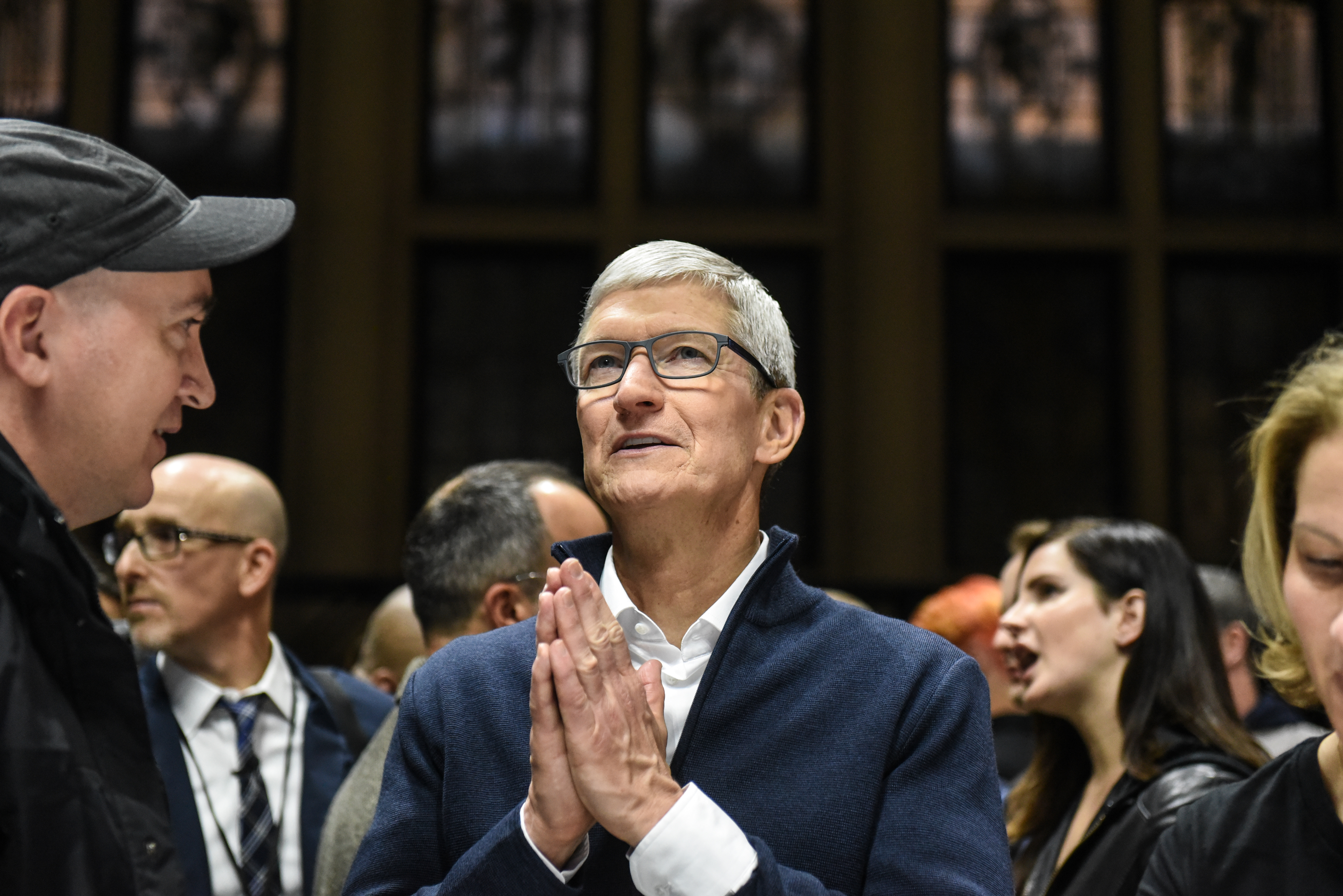Apple vs. Qualcomm trial: what’s behind the rivalry?
Five-week legal battle could have a significant impact on the smartphone world

A free daily email with the biggest news stories of the day – and the best features from TheWeek.com
You are now subscribed
Your newsletter sign-up was successful
Apple and US chipmaker Qualcomm entered into their next phase of legal hearings at a federal court in San Diego on Monday, as the companies aim to settle a two-year legal dispute over patents.
Qualcomm, which supplied “crucial” processors for iPhones, is suing Apple for $7bn (£5.35bn) in unpaid royalties, along with “other damages totalling billions of dollars”, CNN reports.
Meanwhile, Apple argues that the chipmaker charges “too much for licensing its patents” and is seeking up to $27bn (£20.63bn) in damages, the US-based broadcaster adds.
The Week
Escape your echo chamber. Get the facts behind the news, plus analysis from multiple perspectives.

Sign up for The Week's Free Newsletters
From our morning news briefing to a weekly Good News Newsletter, get the best of The Week delivered directly to your inbox.
From our morning news briefing to a weekly Good News Newsletter, get the best of The Week delivered directly to your inbox.
Apple enters the hearing in the wake of a legal victory, having won a preliminary judgment last month that forced Qualcomm to pay “nearly” $1bn (£764m) in “withheld rebates”, say Apple news site MacRumors.
But Qualcomm has also logged a few wins over the past two years. The company has won a series of legal battles against Apple, which resulted in the temporary ban of older iPhones in some countries, The Daily Telegraph says.
When did the feud begin?
Qualcomm has supplied cellular network chips to Apple for its iPhones since 2011, notes Mashable. Under the deal, Apple was required to pay the chipmaker for the processors, as well as settle a licensing fee for the intellectual property (IP) that allows the devices to connect to the internet.
A free daily email with the biggest news stories of the day – and the best features from TheWeek.com
Between 2013 and 2016, Qualcomm agreed to pay Apple a yearly rebate of $1bn as part of the partnership’s exclusivity deal, the tech site adds. Under the terms of the agreement, the iPhone maker was barred from “cooperating with regulators” and working with other chip manufacturers.
Apple filed its first legal complaint against Qualcomm in January 2017, where it accused the chipmaker of charging “high fees” due to the dominance of the iPhone, the BBC reports.
The Cupertino-based tech giant’s case was backed by Foxconn and Pegatron, which assemble Apple’s iPhones, the broadcaster adds.
What does Qualcomm have to say?
The chipmaker argues that its patents are “a hard-won product of billions of dollars of research and development”, and it is therefore “reasonable” to rely on them as a significant revenue stream, The Verge says.
Qualcomm has logged a number of patent infringement complaints against Apple and has seen “a certain amount of success”, the tech site says. Judges in Germany and China found that the iPhone maker had infringed some of Qualcomm’s patents, resulting in the temporary ban of older iPhones in those countries.
By tallying up a series of patent wins, the company hopes to prove that its technology is “more valuable than what it’s been charging”, The Verge adds. While this wouldn’t disprove Apple’s complaints, it could pressure the company into withdrawing its lawsuit.
When will the trial end?
The trial will last for around five weeks, with the opening sessions hearing arguments from lawyers representing each side, the BBC says. Apple chief executive Tim Cook, along with “senior Qualcomm staff”, are due to testify.
There could be significant ramifications if Qualcomm loses the battle, the broadcaster claims. This is because it could prompt other smartphone makers to “challenge the fees they pay” to their suppliers.
What could it mean for the iPhone?
Although Apple no longer uses Qualcomm chips in its iPhones, Qualcomm argues that the iPhone maker stole “vast swathes” of confidential information and gave it to rival firm Intel – which now supplies its processors to Apple, The Verge notes.
Qualcomm is handling this dispute separately to its current legal battle against Apple, the tech site says. It’s therefore not yet known what impact this would have on iPhone sales.
However, it’s unlikely that Qualcomm will supply its technology to Apple in the foreseeable future, and that could have a major impact on the competitiveness of the iPhone in future.
According to Mashable, Qualcomm holds key patents for 5G technology, an ultra-fast mobile network that’s set to shake up the tech industry over the next few years.
Intel isn’t expected to release 5G-compatible chips until at least 2020, while Qualcomm will have the network technology in consumer products this year, the tech site says.
“If Apple and Qualcomm can't work out their differences, 5G on iPhones could still be a long, expensive way off”, the site concludes.